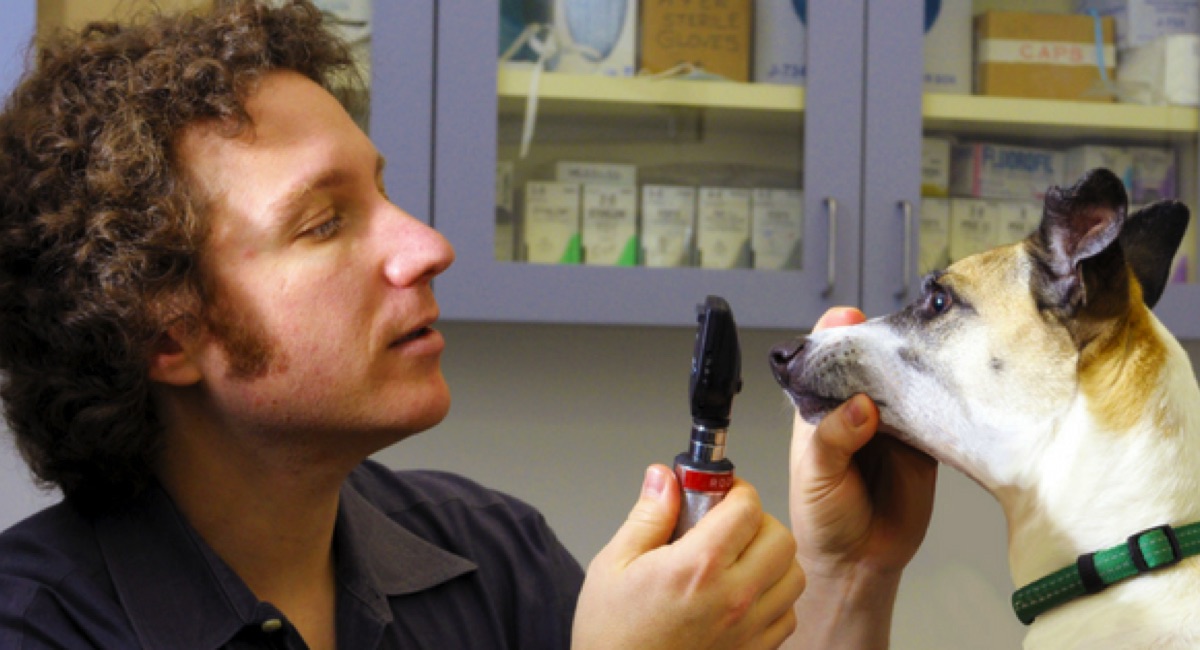Gary Richter is a vet practising in the San Francisco Bay area who is gathering a reputation for his alternative approach to veterinary treatments. The main reason is that he’s a strong advocate for cannabis as a treatment for a wide range of illnesses in his patients.
This approach to veterinary practice comes under Gary’s banner of integrated care.
“That means we take conventional western medical care as well as alternative care, so things such as acupuncture, herbal therapy, chiropractic therapy… and we weave it all together to get a better outcome for our patients. Given my level of interest in alternative care and herbal medicine, it was a natural progression for me to investigate whether or not cannabis would be helpful for veterinary patients.”
And what Gary has found so far is that cannabis is indeed helpful for veterinary patients.
“What I found both through my research and through my personal experience is it’s incredibly effective and, perhaps more importantly, incredibly effective for a lot of conditions that western medicine does not particularly do very well with.”
You may be wondering what these conditions are, but chances are you already know.

Dr Gary Richter with Dopamine feature editor Adam Marshall [L] and publisher Sam Caldwell [R]
“If you are familiar with the list of issues that people use cannabis for, it’s much the same list. So chronic pain, arthritis, gastro-intestinal conditions, anxiety, stress, insomnia, to help with cancer. Really, it’s the full list of things you would think of for a person.”
Although the benefits of using cannabis treatment are apparent, Gary can’t legally prescribe cannabis to his patients, and neither can any health professional in the States for that matter.
“Prescribe is a very sticky term, so in fact no veterinarian or physician can prescribe medical marijuana because prescribe, for us, is a federal term that refers to federally approved prescription drugs, and cannabis (marijuana) is still federally illegal in the States. So as it sits right now in California, for example, a medical doctor/physician for people can recommend (that’s the term used) cannabis for their patients and then the patient goes and gets their own cannabis.”
But it’s not just a matter of terminology when it comes to what Gary does, as cannabis treatments for pets haven’t been officially got the green light. The challenges that Gary and any other alternatively inclined vets face are the same as those in the rest of the cannabis movement – namely, legal approval from the higher-ups. The rest of the community seems to be in favour.
“So it’s not technically legal, even in California right now, for a veterinarian to recommend cannabis for their patients. That’s something that I’m actually working on getting changed with our legislature but for a lot of technical reasons we’re not quite there yet… I’ve never talked to a veterinarian who didn’t think it was a good idea. I’ve never talked to a pet owner who didn’t think it was a good idea. The only person who seems to think that it’s not a good idea is the government.”
All of this legal mumbo jumbo is a challenge for the cannabis therapeutics to overcome in the future, but for now Gary’s main focus is on his patients.
“As a health care practitioner, my ultimate goal is: how can I improve the lives of my patients? How can I help my patients live longer and healthier lives? And cannabis absolutely is a part of that treatment plan for a lot of patients. We do our best to give people the kind of guidance they need so they can get the right strain, the right product, the right dosage so they can get a positive result.”





































































































